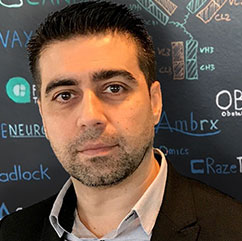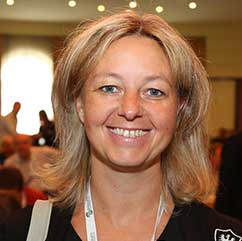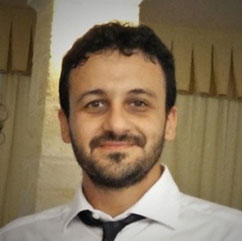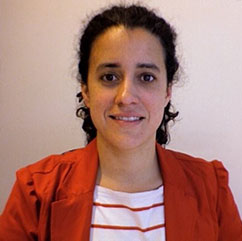The Research and Development Collaborations in Knowledge Transfer training course is designed to equip professionals with the skills to foster effective R&D collaborations between academic institutions and industry.
The Research and Development Collaborations in Knowledge Transfer training course is designed to equip professionals with the skills to foster effective R&D collaborations between academic institutions and industry.
This R&D training course delves into the strategies and best practices necessary for collaborative research and development, with a strong emphasis on intellectual property considerations, open innovation, and effective knowledge transfer within knowledge transfer networks and knowledge transfer partnerships. Through interactive sessions, case studies, and practical exercises, participants will gain insight into the dynamics of R&D collaborations and learn how to navigate challenges, particularly in negotiating complex and troublesome contracts. An appreciation for managing intricate negotiations is advantageous when attending this course, as it provides essential expertise for fostering innovation and ensuring successful knowledge transfer outcomes.
Why join the course?
This course is an excellent opportunity to enhance expertise in fostering effective partnership. Participants benefit from practical case studies, interactive sessions, and networking with industry leaders, making it ideal for professionals aiming to drive impactful R&D collaborations and advance their careers.
Engage with a diverse professionals from various European countries and institutions, providing a rich platform for networking and sharing experiences. These interactions can lead to new collaborations and expand your professional network.
Through workshops and discussions, participants can apply their learning to real-world scenarios. This hands-on approach enhances your ability to negotiate successful deals and manage research and development projects effectively.
Learning Objectives
- Handling communication between academia and industry
- Managing expectations
- Improving negotiation skills
- Nurturing alliances
- Handling IP within collaborations
Course Topics
- Deriving fair value from foreground IP
- Keeping track of IP: open innovation
- Stakeholder management
- Creating corporate alliances
- Collaborative agreements
- What to do when things go wrong
- Creating win-win situations
- IP clauses - the different possibilities
- Managing IP in overlapping projects
- Programme
- Speakers
- Venue
- Local Area
Programme
-
Wed 26 March 2025
-
09:00 - 09:30 Course introduction
This short module introduces the course content, course directors, trainers and participants.
-
09:30 - 10:00 Get started
A presentation on the different forms of collaboration and cooperation that we have with industry, and the various forms of agreement that we use to define the relationship, including Material Transfer Agreements, Consultancy Agreements and Research Collaboration Agreements.
This session will guide you through selecting the right form of agreement with which to align expectations and avoid conflict.
Trainer : Sigmar Lampe -
10:00 - 10:30 Break
-
10:30 - 12:00 Maintaining the respect and co-operation of all stakeholders (including academics)
We work in an intensely busy environment where emails (with large ‘cc lists’) have become a common form of communication replacing face to face meetings and leading to all kinds of ‘buck-passing’. We must operate and perform in the middle of all this poor communication, rise above it and focus on the task: the deal.
Often, we act with very little real authority. We have the power to sign-off but will be reluctant to do so if someone, somewhere, has expressed concerns.
In this session, we look at a sponsored studentship negotiation that went badly wrong and ask whether the Contracts Officer could have done anything about it?
Trainers : Sigmar Lampe and Florian Kirschenhofer -
12:00 - 13:30 IP clauses: the different possibilities
We will introduce the different ‘parameters’ of IP clauses then break into small groups to discuss several cases that exemplify different types of intellectual property scenarios.
Group work will feed into a wider discussion on the different ways in which IP rights can be managed and the most appropriate solutions for a given scenario. We will also discuss how to manage the extreme opening positions that we are often presented with and the importance of negotiating ‘rights’ rather than ‘ownership’, differentiating ‘background’ from ‘foreground’ and the imperative of maintaining academic freedom to research and collaborate.
Once we have determined how to manage the IP rights, and the solutions that best match a given scenario, we face the challenge of drafting clauses that are clear, unambiguous and workable for a long-term relationship. Again, group work will be used to share experiences. discussion.
The aim of this session is to have a better understanding of the IP clauses we can use and the confidence to negotiate them.
Trainer: Tilmann Lahann -
13:30 - 14:30 Lunch
-
14:30 - 15:30 Managing the IP when projects overlap
Most researchers are involved in multiple collaborations; both simultaneously and sequentially. So are businesses. Part of our role is to ensure that there are no conflicts and to ensure that the academic freedom to work with others is preserved.
In this session, we will look at two real-life cases to explore which problems can occur when we try to manage the many different sources of funding and contractual obligations that bind researchers.
Trainer: Tilmann Lahann -
15:30 - 16:00 Break
-
16:00 - 17:15 Different possibilities on how to draft clauses on conflict resolution
In this session, we will explore the different options regarding conflict resolution arbitration, ordinary courts, and examine the pros and cons of the different venues and choices of law.
As a Contracts Manager, is there anything you can do to avoid the project ending in conflict?
Trainer: Tilmann Lahann -
17:15 - 17:30 Take away from the day
What have we learned? How can we be perceived as facilitators rather than blockers of research relationships?
-
19:00 - 22:00 Networking dinner
Join participants from all the courses, the speakers and the ASTP staff team for a meal together in a local restaurant.
-
-
Thu 27 March 2025
-
09:00 - 10:30 Deriving fair value from foreground IP
Finding the right IP structure is only half the battle. We are still left with the issue of valuing the IP when we have little knowledge of the IP’s true value. What should we do?
Should we take the academics’ opinion, consult with the Knowledge Transfer Office or trust the company? Should we insist on a ‘wait and see’ strategy in which the discussion is deferred until we know what has been ‘invented’, and its commercial value?
How can we avoid meaningless ‘agree to agree’ clauses in which one or other party is left exposed? What tools can we use, and which structure should we choose for the payments
Trainer : Kirstin Schilling -
10:30 - 11:00 Break
-
11:00 - 11:45 Case study: Inchworm
An academic want to develop a relationship with a company; the Contracts Officer is brought in to advise on the terms of a collaboration. Is it possible to develop a win-win scenario?
Trainers : Sigmar Lampe and Florian Kirschenhofer -
11:45 - 12:30 Case study feedback: Inchworm
Report back and discuss the issues raised in the previous session: what was trivial and what was problematic?
Trainers : Sigmar Lampe and Florian Kirschenhofer -
12:30 - 13:30 Collaborative agreements as the bedrock of research relationships
Successful collaborations are built on mutual trust, a common understanding of the mission and a balance of interests for all partners.
This session will highlight the motivation for, and topics of, industrial collaborations with science partners and others: such as, bilateral collaborations, scientific networks, with and without public funding, and recent cases of joint labs on campus or industrial sites.
These collaborations require well-balanced agreements. Possible hurdles include EU state-aid regulations, which distinguish between contract work and cooperation; subcontracting in publicly funded projects, and IP regulations.
Trainer : Mark Wilson -
13:30 - 14:30 Lunch
-
14:30 - 15:30 When things go wrong
Sometimes the collaboration will not have a happy ending. It can be a violation of the contract terms, or a different interpretation of the wording. Whatever the problem, it will almost certainly create unpleasant conversations that shall require difficult negotiations to reach an agreement on solving the problem.
In the session, you will be presented with several real-life scenarios and given a role to play in trying to solve them.
Trainer : Mark Wilson -
15:30 - 16:00 Break
-
16:00 - 17:00 Keeping track of IP - open innovation
What happens once the collaboration agreement has been signed? Is it filed, never to be seen again or is it monitored and controlled? Who does what at your university and does the Contract Manager have any responsibility to track old agreements? How do we manage the obligation to grant access rights in EU projects and how do we follow-up on the options we have granted in the contracts?
Trainer : Kirstin Schilling -
17:00 - 17:30 Take away from the day
-
-
Fri 28 March 2025
-
09:00 - 10:30 Discussions between the academic and the business
How should we manage the interface between the academic and the business? It is our role to define the relationship. When we may be seen to hinder rather than help? How can we frame our input as helpful in order to be valued by both parties? How do we combine the role as facilitator and ‘police officer’?
This session is based on a case where you will hear both sides of the story from the people who were involved and discuss how they might have managed to achieve a win-win situation.
Trainer : Poul de Haan -
10:30 - 11:00 Break
-
11:00 - 12:30 Building and bulldozing corporate alliances
The pinnacle of any collaboration is the ‘strategic alliance’. These emerge over time as the relationship, built on mutual trust and knowledge, develops. That relationship is built slowly by honest dialogue, mutual need and generous exchange. It can be destroyed quickly by opportunism, bureaucracy and misunderstanding.
In this session we examine the role of the Contract Manager in both nurturing and destroying such alliances.
Trainer: Sigmar Lampe -
12:30 - 13:00 Wrap up
Trainers : Sigmar Lampe and Florian Kirschenhofer
-
13:00 - 14:00 Lunch
-
Speakers
Venue
Venue - Royal Olympic Athens
28-34 Ath. Diakou str., Athens 11743, Greece
Room Rates at Royal Olympic Hotel
Executive Room Single Occupancy : €120.00 per night inclusive of breakfast
Deluxe Room Single Occupancy : €160.00 per night inclusive of breakfast
Athenian Panorama Single Occupancy : €260.00 per night inclusive of breakfast
Terms and conditions
Participants must make their booking through this link https://bit.ly/royalolympic
The rates are valid for the night of 25th, 26th, 27th and 28th March 2025. Should you wish to stay longer, kindly contact the hotel directly.
The room is subject to availability.
Other hotels
In the event that Royal Olympic Hotels is fully booked, please find below other hotels in the neighbourhood. Please note ASTP does not have special arrangement with these hotels.
1. Acropolian Spirit Hotel
2. Acropoli11Suites
3. Athens Gate
4. Acropolis Museum Hotel
Local Area
-
Museum - Acropolisa
TBC



















































